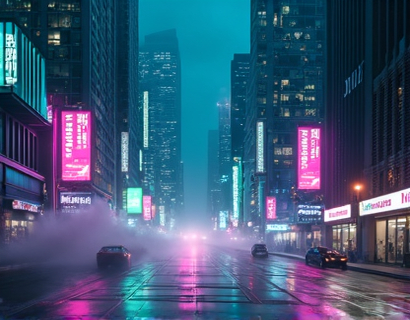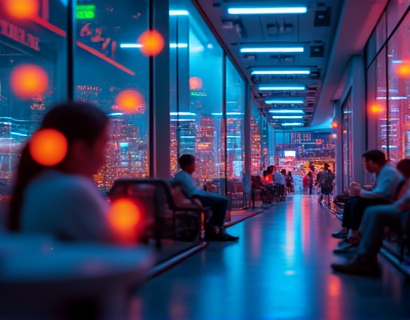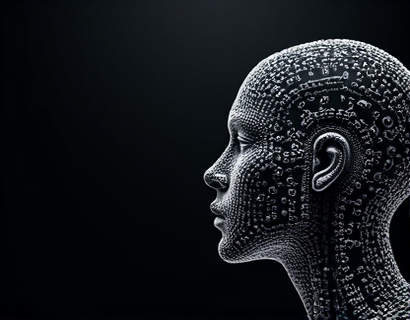AI-Driven Fashion Intelligence: Transforming the Industry with Real-Time Insights and Expert Guidance
The fashion industry, known for its rapid pace and constant evolution, faces unique challenges in keeping up with the latest trends, consumer preferences, and market dynamics. The integration of Artificial Intelligence (AI) into fashion has given rise to a new paradigm, offering users instant, secure, and personalized insights into industry trends and expert advice. This transformation is not just about keeping pace with the times; it's about empowering fashion enthusiasts and professionals alike to make informed decisions and stay ahead of the curve.
The Need for Intelligent Fashion Insights
Fashion is a highly competitive and dynamic market where staying informed is crucial. For fashion enthusiasts, keeping up with the latest trends, designer releases, and style advice can be overwhelming. Industry professionals, including designers, retailers, and marketers, require deeper insights to navigate supply chains, predict consumer behavior, and innovate effectively. Traditional methods of gathering this information, such as manual research and industry reports, are time-consuming and often lag behind real-time changes. AI-driven fashion intelligence addresses these challenges by providing immediate, accurate, and tailored information.
How AI Enhances Fashion Decision-Making
AI technologies, particularly natural language processing (NLP) and machine learning, enable the creation of sophisticated chat interfaces that can understand and respond to user queries in real-time. These interfaces analyze vast amounts of data from various sources, including social media, fashion shows, retail sales, and consumer feedback, to deliver up-to-date insights. For instance, a fashion designer can ask about the current popularity of specific fabrics or colors and receive instant analysis, complete with trend forecasts and market predictions.
Real-Time Industry Trends
One of the most significant benefits of AI-driven fashion intelligence is the ability to monitor and understand real-time industry trends. Users can ask about emerging styles, popular brands, and seasonal forecasts, and receive detailed responses based on current data. This immediacy is invaluable for designers who need to make quick decisions about collections, retailers looking to optimize inventory, and consumers seeking the latest fashion advice.
For example, an AI chat interface can analyze social media platforms to identify which colors and patterns are trending in real-time. It can then provide a breakdown of these trends, including their popularity across different regions and demographic groups. This level of granularity allows users to tailor their strategies with precision, whether it's adjusting a product line or creating targeted marketing campaigns.
Expert Advice at Your Fingertips
Beyond trend analysis, AI-driven fashion intelligence offers expert advice from industry professionals. Users can engage in conversations that mimic human dialogue, asking for opinions on design concepts, business strategies, and market entry points. The AI system, trained on a vast repository of expert knowledge, can provide insights based on historical data and current industry practices. This personalized advice helps users navigate complex decisions with confidence.
For instance, a new fashion startup can seek advice on brand positioning and marketing strategies. The AI can draw from case studies of successful brands, current market conditions, and consumer behavior data to offer tailored recommendations. This level of expert guidance is typically accessible only through expensive consultations, making AI-driven insights a democratizing force in the industry.
Enhancing Consumer Engagement
The consumer segment also benefits significantly from AI-driven fashion intelligence. Shoppers can receive personalized style advice, product recommendations, and trend updates based on their preferences and purchase history. This personalized experience not only enhances customer satisfaction but also drives sales and brand loyalty.
Imagine a user interacting with an AI chat interface while browsing an online fashion store. They can ask for outfit suggestions based on their body type, preferred colors, and current fashion trends. The AI can then provide a curated selection of items, complete with styling tips and customer reviews. This level of personalized service is difficult to achieve through traditional methods and significantly enhances the shopping experience.
Sustainable Fashion Insights
Sustainability is a growing concern in the fashion industry, and AI-driven intelligence can play a crucial role in promoting eco-friendly practices. Users can inquire about sustainable materials, ethical manufacturing processes, and brands committed to environmental responsibility. The AI can provide detailed information, including certifications, supply chain transparency, and impact assessments, helping consumers make informed choices.
For industry professionals, AI can offer insights into sustainable trends and consumer preferences, aiding in the development of eco-friendly product lines. Brands can use these insights to innovate and differentiate themselves in a market increasingly driven by sustainability.
Ensuring Security and Privacy
As with any technology that handles sensitive information, ensuring the security and privacy of user data is paramount. AI-driven fashion intelligence platforms implement robust security measures, including encryption, access controls, and regular audits. Users can trust that their data is protected, allowing them to engage with the platform without concerns about data breaches or misuse.
Transparency is also key. Users are informed about how their data is collected, used, and stored, with clear options to manage their privacy settings. This approach builds trust and encourages broader adoption of AI-driven fashion intelligence tools.
Future Prospects and Challenges
The integration of AI in fashion is still in its early stages, with significant potential for growth and innovation. As AI technologies continue to advance, we can expect even more sophisticated insights and personalized experiences. However, challenges remain, including the need for high-quality, diverse data sets, the ethical use of AI, and the integration of human expertise with machine intelligence.
Collaboration between tech developers, fashion experts, and industry stakeholders will be crucial in overcoming these challenges. By working together, the fashion industry can harness the full potential of AI to create a more informed, sustainable, and consumer-centric market.
In conclusion, AI-driven fashion intelligence represents a transformative shift in how the fashion industry operates. By providing real-time insights, expert advice, and personalized experiences, AI empowers users to navigate the complex world of fashion with confidence and precision. As the technology evolves, it will continue to reshape the industry, driving innovation and enhancing the value for all participants.










































